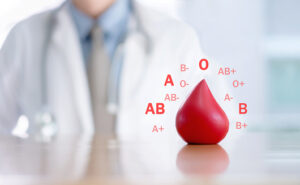Organ transplant recipients with group O blood type often have to wait at least twice as long as group A, B or AB recipients and have a 20% greater risk of mortality while on the transplant waitlist. Similar to RBCs, enzymatic removal of the terminal sugar epitope (α-galactose or N-acetyl-galactosamine) on A and B antigen oligosaccharides would convert these antigens to the universal group O blood type and expand the compatible organ donor pool. Recently, two enzymes that remove the A antigen have been identified: FpGalNAc deacetylase and FpGalactoaminidase (Azymes). Wang et al. show that Azymes removed more than 99% and 90% of the A antigen from RBC samples (n=5) and human aortae (n=3), respectively. Furthermore, over 97% of endothelial A antigen was removed by Azymes during ex vivo lung perfusion over 4 hours (n=8). Simulation of transplantation with incompatible lungs (treated with Azymes) using an ex vivo model suggest that this treatment may reduce antibody-mediated lung injury and rejection. Further studies are needed to study antigen re-expression and long-term post-transplant effects of the lungs and other organs.
Reference:

